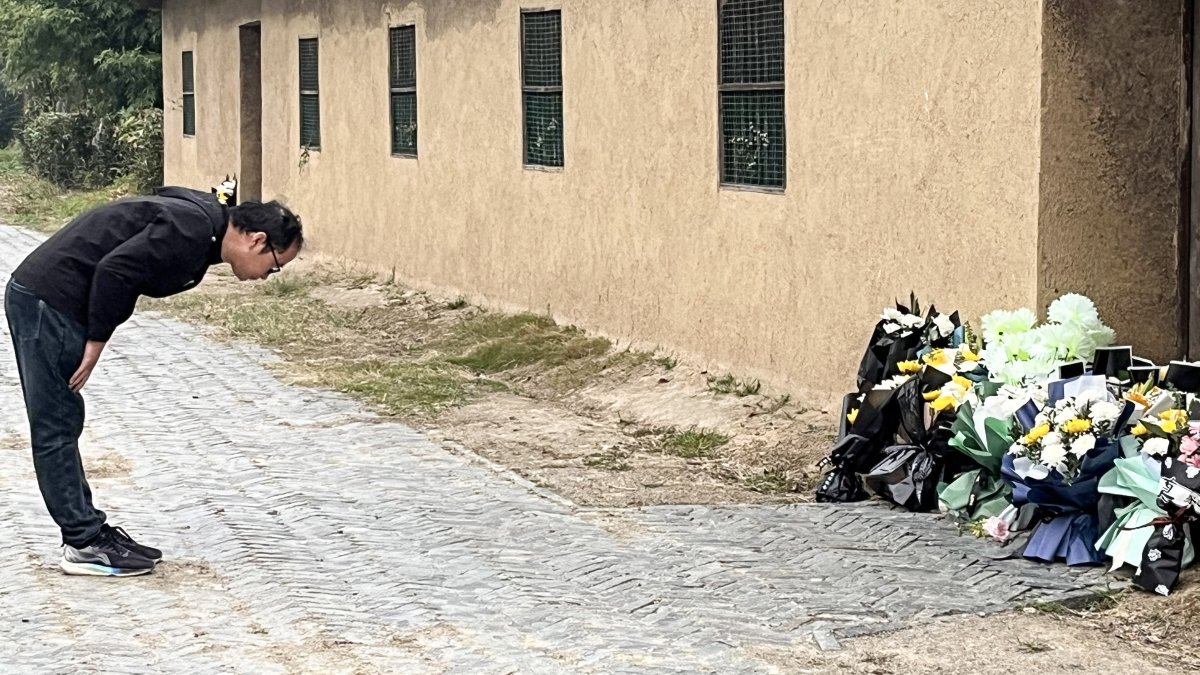Late last month, the Chinese government issued a terse statement to announce that former premier Li Keqiang had died from a heart attack in Shanghai shortly after midnight. He was 68 years old. Li's sudden death shocked the country, prompting an outpouring of grief, both online and on the street. The mourning marked the largest spontaneous expression of public sentiment in China since the White Paper protests nearly one year earlier, in which people turned out to demand an end to the regime's draconian "zero COVID" policy as well as broader freedoms and democratic rule.
Unsurprisingly, the government quickly swooped in, using censorship and police intimidation to contain the overwhelming emotion set off by Li's passing. And once again, a game of cat and mouse ensued as citizens sought to evade official constraints, repeating a familiar pattern in the continuous struggle between the Chinese Communist Party (CCP) and the Chinese people's collective yearning for freedom.
What made the loss of Li Keqiang especially painful was his stark contrast with president and CCP leader Xi Jinping, whom he served as premier for two five-year terms before retiring in March of this year. Li wanted the government to focus on economic growth and broad-based prosperity, while Xi was obsessed with ideological conformity and state dominance. Unlike Xi, who only talked about "poverty alleviation" in abstract terms and stayed away from disaster scenes, Li often showed care for the less fortunate. At a news conference in 2020, Li noted that even though China had the second-largest economy in the world, some 600 million people in the country still had an average monthly income of $150. "It's not even enough to rent a room in a medium-sized Chinese city," he said. In January 2020, Li visited Wuhan, where the COVID-19 outbreak originated, at a time when the virus was still raging in the city. Xi only visited two months later, when the contagion had been brought under control.

Tragically for China, Li decisively lost at every stage of his policy dispute with Xi. He was considered the least powerful premier in the history of CCP rule. His authority gradually shrank as Xi concentrated more and more power in his own hands. "If a person was remembered not for what he had done, but for what he couldn't do, then this isn't the tragedy of him alone!" a netizen commented.
One of the first collective expressions of sorrow after Li's death was large-scale sharing of Malaysian singer Fish Leong's song "A Pity It Wasn't You," a veiled dig at Xi. Censors quickly deleted posts pertaining to the song and restricted search results for related terms. Some netizens who shared the song had their accounts suspended. The hashtag "The one who should die hasn't" was also censored.
Online sentiment quickly spilled into the offline world. On the Shanghai street where Li died, a man was seen wearing a metallic costume and carrying a sign that read, "I'm in Shanghai, I really want you to die"—with the "you" evidently referring to Xi. The sign's design was an allusion to the street sign for Urumqi Middle Road, a key protest site during the 2022 White Paper demonstrations in the city. Photos taken by bystanders showed that the man was later questioned by the police. His current situation is unknown.
The man's silver costume might look comical, and his sign especially acerbic, but his bravery was clearly immense. Peng Lifa, the man who unfurled protest banners at a bridge in Beijing last October, calling for Xi to end "zero COVID" restrictions and resign, was apparently detained incommunicado in an enforced disappearance, and remains missing to date.
Over the weekend, people across the country went to public spaces to commemorate Li. In Hefei, Anhui Province, citizens stood in long lines to place flowers outside his hometown residence. The note on a bouquet of flowers laid in a major public square in Changsha read,
"Premier Li, rest in peace! Why does it have to be you?"
Authorities responded by sending scores of police officers to guard sites where people had assembled, cordoning off city landmarks where flowers could be laid, and canceling scheduled public events to prevent them from turning into mass mourning. A number of universities ordered students not to attend commemoration gatherings.
As exiled Chinese writer Murong Xuecun pointed out, the public grieving for Li Keqiang is effectively mourning for a China that could have been. It is meant not only to show sympathy for a leader who had tried but failed to make China a better country, but also to express discontent with Xi and despair about the future. "The commemoration of Li Keqiang is no longer about Li Keqiang," Murong wrote. "It is something in which people find comfort."
The Chinese people are risking their liberty to mourn the loss of a promising leader and to demand a freer and more just China, just as they did in the spring of 1989, when the reformist leader Hu Yaobang died. In that case, their sadness and frustration sparked the momentous Tiananmen Square protests. No wonder then that the CCP under Xi is determined to stamp out the current expressions of grief as quickly as possible.
Yaqiu Wang is research director for China, Hong Kong, and Taiwan at Freedom House.
The views expressed in this article are the writer's own.
Uncommon Knowledge
Newsweek is committed to challenging conventional wisdom and finding connections in the search for common ground.
Newsweek is committed to challenging conventional wisdom and finding connections in the search for common ground.
About the writer
To read how Newsweek uses AI as a newsroom tool, Click here.






